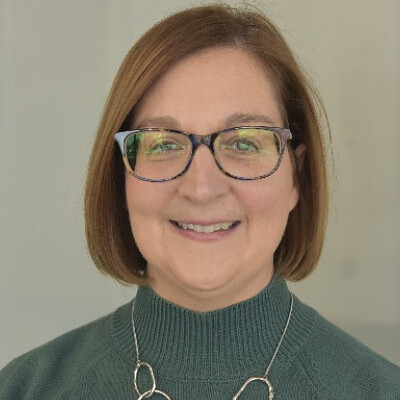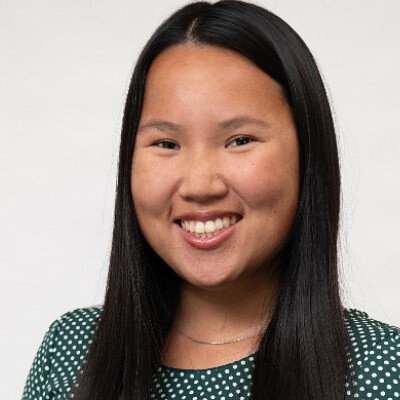This lightning talk will describe an initiative that promotes stroke caregiver health. Stroke survivors have a high rate of disability and significant chronic needs. Informal caregivers play a critical role in aiding the recovery process, preventing further strokes, and maintaining the stroke survivors’ involvement in their communities. Caregiving is an all-encompassing role, and stroke caregivers experience negative changes to their health and wellness. Physiological and psychological impacts include cardiovascular disease, risky health behaviors, depression, anxiety, stress, decreased quality of life, morbidity, and mortality. There is a gap in accessible, community-based interventions that address the holistic health needs of stroke caregivers.
Support groups are a popular intervention across many practice settings and address the myriads of impacts from caregiving. Utilizing focused assessments, individualizing the delivery to the participants, and establishing a set number of sessions has proven efficacy. Interprofessional collaboration between nursing and occupational therapy at the MGH Institute of Health Profession’s Impact Practice Center and Tedy’s Team facilitated the development of a free, virtual stroke caregiver support group. Partnering with leadership at several stroke survivor practices and organizations afforded a fruitful way to recruit participants. Recruitment strategies sought to identify both interest and preferred times to run the support group. Participants were caregivers to their spouses or children who had experienced a stroke at least one year ago. The support group consisted of 5 weekly sessions with an assigned topic. During each session, participants were encouraged to share their lived experience. The virtual delivery accommodated the various environmental circumstances that caregivers face. At the start of the first session, caregivers were assessed for loneliness and engagement in self-care utilizing the UCLA Loneliness Scale and How Well Do You Take Care of Yourself assessment tool. At the conclusion of the 5-week session, the loneliness assessment was repeated and caregiver’s satisfaction with the support group was assesses using a Post-Program Satisfaction survey.
The evaluation data showed participants require improvement with self-care. There was no significant changes in loneliness from pre-test to post-test. Participants self-reported benefit and satisfaction with the support group.
By utilizing an interprofessional approach, nursing and occupational therapy developed an effective intervention that facilitates health promotion in stroke caregivers. The virtual support group provides a model for interprofessional education and future iterations will integrate health professions students. Stroke caregivers experience negative health outcomes related to their role. Healthcare providers need to recognize the implications of caregiving and prioritize caregiver health.
In support of improving patient care, this activity is planned and implemented by The National Center for Interprofessional Practice and Education Office of Interprofessional Continuing Professional Development (National Center OICPD). The National Center OICPD is accredited by the Accreditation Council for Continuing Medical Education (ACCME), the Accreditation Council for Pharmacy Education (ACPE), and the American Nurses Credentialing Center (ANCC) to provide continuing education for the healthcare team.
As a Jointly Accredited Provider, the National Center is approved to offer social work continuing education by the Association of Social Work Boards (ASWB) Approved Continuing Education (ACE) program. Organizations, not individual courses, are approved under this program. State and provincial regulatory boards have the final authority to determine whether an individual course may be accepted for continuing education credit. The National Center maintains responsibility for this course. Social workers completing this course receive continuing education credits.
The National Center OICPD (JA#: 4008105) is approved by the Board of Certification, Inc. to provide continuing education to Athletic Trainers (ATs).
This activity was planned by and for the healthcare team, and learners will receive Interprofessional Continuing Education (IPCE) credit for learning and change.


Physicians: The National Center for Interprofessional Practice and Education designates this live activity for AMA PRA Category 1 Credits™. Physicians should only claim credit commensurate with their participation.
Physician Assistants: The American Academy of Physician Assistants (AAPA) accepts credit from organizations accredited by the ACCME.
Nurses: Participants will be awarded contact hours of credit for attendance at this workshop.
Nurse Practitioners: The American Academy of Nurse Practitioners Certification Program (AANPCP) accepts credit from organizations accredited by the ACCME and ANCC.
Pharmacists and Pharmacy Technicians: This activity is approved for contact hours.
Athletic Trainers: This program is eligible for Category A hours/CEUs. ATs should claim only those hours actually spent in the educational program.
Social Workers: As a Jointly Accredited Organization, the National Center is approved to offer social work continuing education by the Association of Social Work Boards (ASWB) Approved Continuing Education (ACE) program. Organizations, not individual courses, are approved under this program. State and provincial regulatory boards have the final authority to determine whether an individual course may be accepted for continuing education credit. The National Center maintains responsibility for this course. Social workers completing this course receive continuing education credits.
IPCE: This activity was planned by and for the healthcare team, and learners will receive Interprofessional Continuing Education (IPCE) credits for learning and change.
Learners can claim CE credit by completing the Daily Evaluation.



